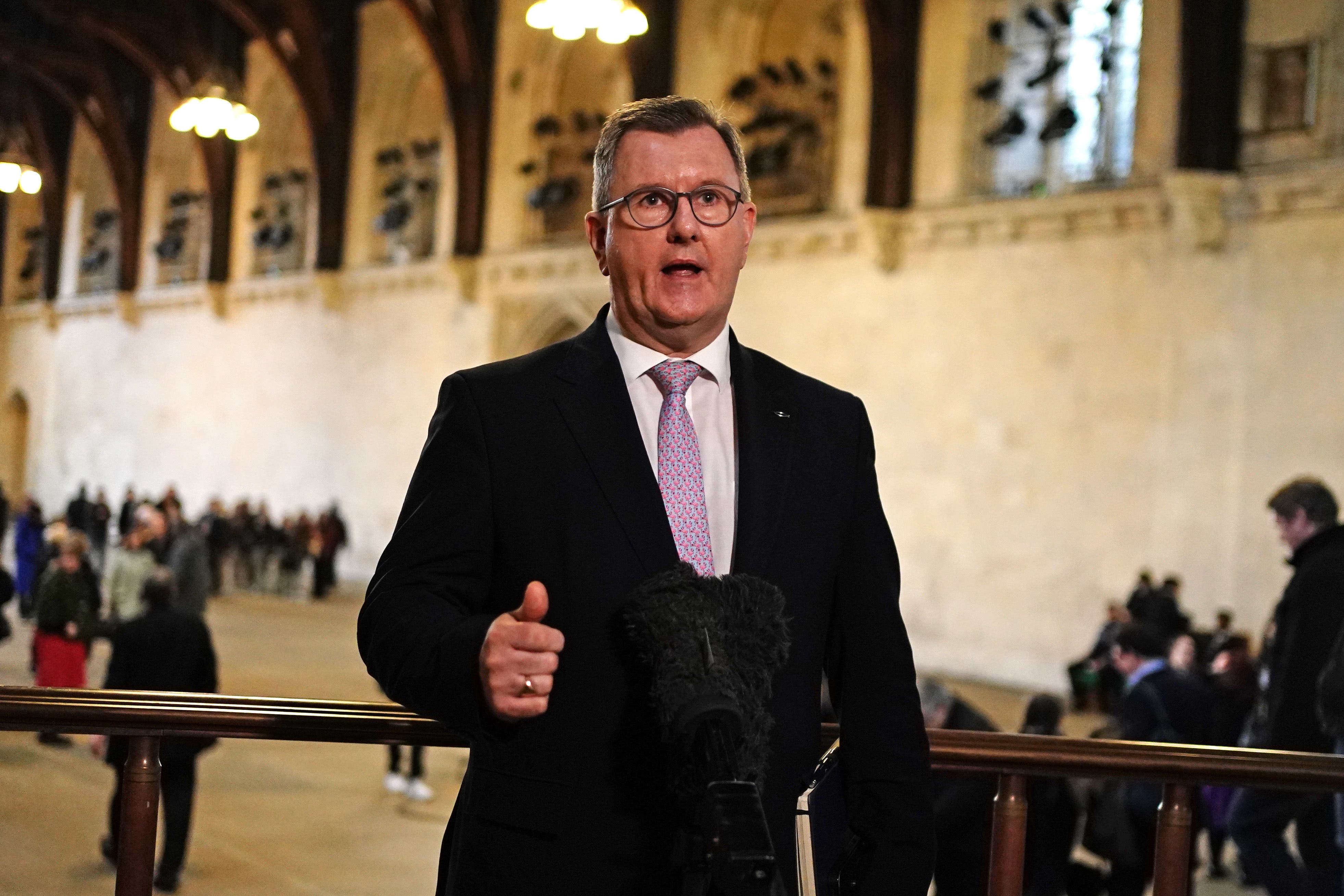Given the long and unhappy history of Northern Ireland, it should not trouble anyone that the Democratic Unionist Party (DUP), long wary of betrayal by British Conservative governments (and with good reason), is taking its time over the Windsor Framework.
They may be encouraged to support it by the rapid – albeit grudging and graceless – support for the deal proffered by Lord Frost and Boris Johnson, the architects of the far inferior Northern Ireland protocol that the framework replaces.
Jacob Rees-Mogg, Liam Fox and Steve Baker, three of the figures the DUP might expect to organise parliamentary resistance within the Conservative Party, have also backed Mr Sunak – Mr Baker emotionally so. The Tory rebellion, which even a week ago looked like it might seriously destabilise Mr Sunak’s leadership, seems to be melting away, dissolved by the sheer power of the concessions he has charmed out of Brussels.
Even if the remaining Johnsonites and Trussites were minded to use the framework as a cynical first move in some sort of kamikaze leadership bid, it would still win overbearing parliamentary approval, if needed, thanks to the votes of opposition MPs. Mr Sunak and Ursula von der Leyen, the European Commission president, also seem determined not to engage in yet another renegotiation.
The prime minister is presenting it as an excellent deal – and one that meets most of the DUP’s seven tests – but it's not a mere draft proposal. It is a deal that won’t be changed in any material way, and which will be implemented for the good of the people of Northern Ireland as a whole, whether the DUP like it or not. As Mr Sunak gently points out, this is not about pleasing one party that represents a substantial (but nonetheless an electoral minority) view. The deal is here to stay, and it should prove popular. It is in the national interest, as well as that of the province.
So the DUP and the remaining Tory Spartans should be allowed the time and space to satisfy themselves that the legal text, such as it is, lives up to its billing. It has been almost a year since the DUP collapsed the Northern Ireland Executive, and a few more days or even weeks for internal rumination and discussion won’t do any harm.
Interestingly, the former leader and first minister Peter Robinson, a protege of the first Ian Paisley, has warned his colleagues in the largest unionist grouping that rejecting the deal would “place unionism and Northern Ireland on more perilous ground”. Sir Jeffrey Donaldson, the present leader, has an apparently open mind; Ian Paisley Jr and Sammy Wilson have profound concerns. A debate is underway. Tough choices are at hand.
Mr Robinson is surely right, however. The Windsor Framework is to be implemented, and if the DUP reject it and continue their boycott of engaging in government in Northern Ireland then, under the current rules, the province will be without a devolved administration indefinitely.
Yet the DUP boycott is now pointless, as well as damaging. The framework is not going to be changed again, because all the possible practical concessions have been won, and there’s no appetite for revisiting it in the Tory party (and certainly not by Labour).
So the DUP must ask themselves what their message to the people of the province actually is. When elections for Stormont come around again next year, is the DUP going to say to the electorate “vote for us not to go to work”? It is a very strange political party that promises that it won’t take office even if it gets elected. It is also one that is signalling to people it has no real interest in serving them.
Whatever grievances they have can be pursued best through the Assembly and Executive – and the EU has now granted Stormont the power of veto. But that power cannot be exercised without a functioning Northern Ireland government.
If they continue to boycott Stormont, the DUP would likely continue to lose its hardline support to Traditional Unionist Voice, the loyalist “real thing” which opposes the Good Friday Agreement as well as the Windsor Framework; while the DUP’s more moderate voters will defect to Alliance and the Ulster Unionists.
Aside from anything else, the indefinite boycott is an insult to the people of Northern Ireland, when DUP politicians are still drawing their salaries without taking their seats in the Assembly. These are, after all, the people who were firmest in the Leave campaign in the EU referendum, when Northern Ireland actually voted Remain. They are going the right way to electoral oblivion.
In short, there is no point in the DUP any longer saying “no” to the framework or to power-sharing. However long it takes for them to say “yes” or even “yes, but” will be time well spent. Mr Sunak will be patient.







Join our commenting forum
Join thought-provoking conversations, follow other Independent readers and see their replies
Comments